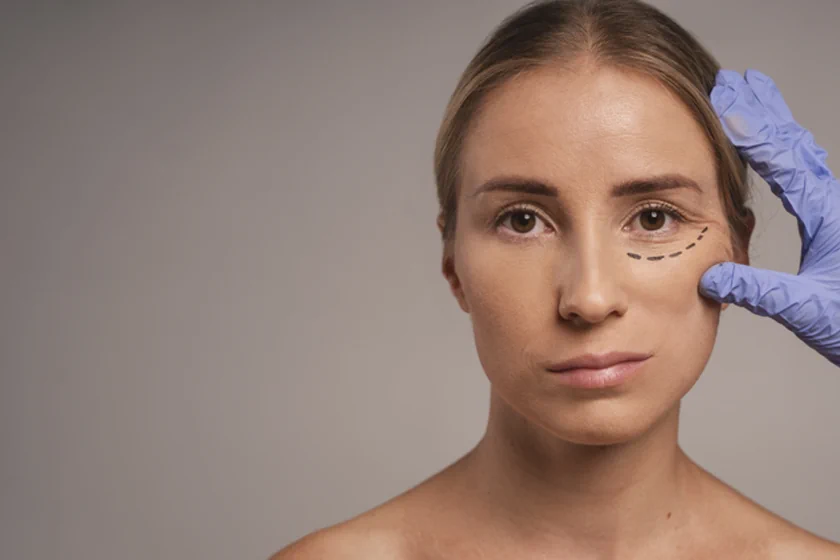|
Getting your Trinity Audio player ready...
|
What are cataracts?
Cataracts refer to a condition where the clear lens of your eye becomes cloudy or opaque. The natural lens loses its transparency. This cloudiness can impede your vision as if you’re looking through a fogged-up window. Cataracts are often related to ageing and are very common among older adults, but they can affect younger people as well. They occur when the proteins in the lens of your eye start to break down and clump together, creating cloudy areas.
What are the 3 types of cataracts?
There are three primary types of cataracts:
Nuclear Cataracts: Forming in the centre of the lens, nuclear cataracts are often associated with ageing.
Cortical Cataracts: These cataracts start in the outer layer of the lens, they are in the form of spikes extending towards the centre with time.
Posterior Subcapsular Cataracts: These cataracts start from the back surface of the lens and can significantly interfere with your reading and night driving vision.
Each type of cataract can develop for different reasons and may exhibit different symptoms. Early detection and treatment by an experienced cataract surgeon in Vadodara can help protect your vision.
What is the main cause of cataracts?
The most common cause of cataracts is ageing. As we age, the proteins in the lens of our eyes begin to break down and clump together, forming the cloudy patches that characterize cataracts. Other factors contributing to cataract formation include eye injuries, certain diseases like diabetes, and prolonged use of steroid medications. Lifestyle habits such as smoking and alcohol consumption can also increase your risk.
Causes and Risk Factors
Cataracts can develop for a variety of reasons, including:
Ageing: This is the most common cause. As you age, the proteins in your eyes can clump together, forming a cloud over the lens.
Medical conditions: Certain conditions, like diabetes, can increase your risk. Cataract can form at an early age in a diabetic as compared to a non diabetic if blood sugar is not well controlled.
Lifestyle factors: Habits like smoking and alcohol use, and long-term exposure to UV light can contribute to cataract formation.
Genetics: If your family has a history of cataracts, you may be more likely to develop them.
Eye conditions: Previous eye surgery or certain types of eye inflammation can lead to cataracts.
Injury: Cataracts are known to develop following any kind of eye injury. These are labeled as traumatic cataracts.
Symptoms and Diagnosis
Cataract symptoms can start out mild and worsen over time. They typically include:
- Blurry or hazy vision
- Increased difficulty in seeing clearly at night
- Sensitivity to light and glare
- Seeing halos around lights
- Faded or yellowed colours
- Double vision in a single eye
If you experience any of these symptoms, it’s essential to get a comprehensive eye exam from a trusted eye care professional in Vadodara. Dr Surbhi Kapadia can provide you with a thorough diagnosis and discuss the best options for your specific needs.
Finding the Best Cataract Surgeon
Importance of Choosing a Skilled Cataract Surgeon / Ophthalmologist
The success of your cataract surgery depends heavily on the skill and expertise of your cataract surgeon. A skilled surgeon like Dr Surbhi Kapadia recognized as one of the best cataract surgeons in Vadodara, can ensure a successful surgery and reduce your risk of complications. With the right surgeon, you can be rest assured, knowing that you’re in good hands.
Tips for Finding the Best Cataract Surgeon
Finding the best cataract surgeon / ophthalmologist in Vadodara involves a few key considerations:
Experience and Credentials: Look for a surgeon who specializes in cataract surgery and has a proven track record of success. Dr Surbhi Kapadia’s extensive experience in treating a variety of eye conditions, including cataracts, places her among the best in the field.
Reviews and Recommendations: Patient testimonials and recommendations can provide valuable insights into the surgeon’s expertise and patient care.
Technology: The best cataract surgeons use the latest surgical techniques and technology to ensure optimal results. At Aadicura Superspeciality Hospital, Dr Surbhi Kapadia uses advanced cataract surgery techniques to provide excellent care.
Cataract Surgery: Post-Operative Care
Immediate Care After Cataract Operation
After cataract surgery, you’ll need to rest and avoid any strenuous activities for a few days. Your eye may be bandaged for a few hours, and later you may be given a pair of protective glasses to wear over your eyes.
Medications and Eye Drops for Post-Operative Care
Your surgeon will provide you with prescription eye drops to prevent infection and inflammation and to control eye pressure. You must follow the medication schedule strictly to promote healing and protect your eye from complications.
Managing Discomfort and Common Side Effects
Mild discomfort, itching, and some watering are common after cataract surgery. These usually improve within a few days. If you have severe pain or your symptoms get worse, contact your doctor immediately.
Follow-up Appointments and Monitoring
Your surgeon will schedule follow-up appointments on days 1, 5 & 10 after surgery to monitor your recovery and ensure that your eye is healing properly. These appointments are essential to your post-operative care.
Taking Care of Your Eyes After Cataract Surgery
Protecting Your Eyes from Infection and Injury
It’s essential to avoid rubbing or pressing on your eye. You should also avoid any activities that could lead to eye injury, such as sports or heavy lifting, for a few weeks after surgery.
Activities and Precautions During the Healing Process
During the first week after surgery, you should avoid strenuous activities, bending over, and lifting heavy objects. You should also avoid swimming and hot tubs to prevent infection.
Recommended Lifestyle Adjustments for Optimal Recovery
After cataract surgery, it’s crucial to maintain a healthy lifestyle to promote healing and protect your eye health. This includes eating a healthy diet, getting regular exercise, and avoiding smoking and excessive alcohol consumption.
Eye Care Habits for Long-Term Eye Health
Protecting your vision after cataract surgery involves maintaining good eye care habits, including regular eye exams, using protective eyewear, and managing chronic health conditions that can affect your eyes.
Ensuring Successful Cataract Post-Op Care
Understanding the Importance of Diligent Post-Operative Care
Proper post-operative care is crucial to your recovery after cataract surgery. This includes taking your medications as prescribed, following your surgeon’s instructions for activity levels, and attending all follow-up appointments.
Adhering to the Surgeon’s Instructions and Recommendations
Your surgeon will provide specific instructions for post-operative care. It’s crucial to follow these instructions carefully to ensure a successful recovery.
Recognizing Signs of Complications and When to Seek Medical Attention
If you experience severe pain, sudden vision loss, or signs of an eye infection, such as redness, swelling, or discharge, you should seek immediate medical attention.
The Role of a Skilled Cataract Surgeon in Post-Op Care
Follow-Up Appointments and Assessments
Your surgeon will schedule regular follow-up appointments to monitor your recovery. These appointments are crucial to ensuring that your eye is healing properly and to addressing any potential complications early.
Addressing Concerns and Answering Questions
A good surgeon will take the time to answer all your questions and address your concerns, providing reassurance and guidance throughout the recovery process.
Providing Guidance for Optimal Visual Recovery
Your surgeon’s expertise is crucial to achieving the best visual outcome after cataract surgery. By closely monitoring your recovery and adjusting your treatment as needed, your surgeon can ensure the best possible visual recovery.
Enjoying Improved Vision After Cataract Surgery
Embracing the Benefits of Cataract Surgery
Cataract surgery can dramatically improve your quality of life by restoring clear vision. This can enable you to enjoy activities that may have been difficult due to poor vision.
Maintaining Regular Eye Exams for Ongoing Eye Health
Regular eye exams are essential for maintaining good eye health after cataract surgery. These exams can help detect any potential issues early, allowing for timely treatment.
Living Life to the Fullest with Clearer Vision
With clearer vision, you can live life to the fullest. Whether it’s enjoying a good book, admiring a beautiful sunset, or simply seeing the faces of your loved ones clearly, improved vision can enhance your everyday experiences.
By choosing Dr. Surbhi Kapadia, one of the best cataract surgeons in Vadodara, you can feel confident in your journey towards clearer vision.
Frequently Asked Questions
No, the only effective treatment for cataracts is surgery. Cataracts cannot be reversed or cured with medication, eye drops, or lifestyle changes.
There's no surefire way to prevent cataracts. However, some habits might delay their onset, such as quitting smoking, reducing alcohol consumption, eating a diet rich in vitamins C and E, and protecting your eyes from the sun.
When you have cataracts, it's essential to protect your eyes from further damage. This means avoiding direct sunlight, using anti-glare glasses when necessary, and maintaining a healthy lifestyle to manage risk factors like diabetes and high blood pressure.
Unfortunately, there's no natural method to remove cataracts. The only proven, effective treatment is surgery. If you think you might have cataracts, it's important to schedule an appointment with an experienced eye doctor like Dr. Surbhi Kapadia.
Most patients notice an improvement in their vision within a few days after cataract surgery. However, full recovery can take several weeks. Your doctor will provide specific instructions for your recovery process.
Follow our YouTube Channel
![]()








